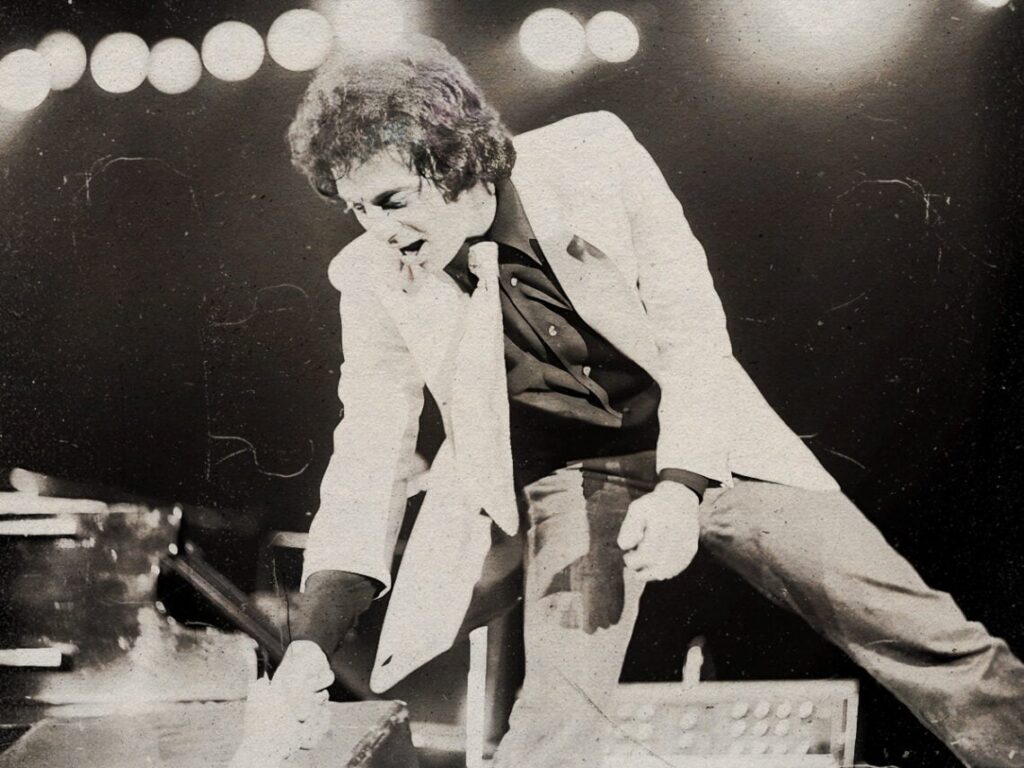“Still very proud”: the album Billy Joel thought held up over the years
 Posted On
Posted On
(Credits: Far Out / Billy Joel)
1982. A year marked by immense unrest, societal turmoil, and a lingering sense of something darker on the horizon. The younger generation had it harder than the ones before, as is usually the case, with many facing a sudden sense of uncertainty, high unemployment, and the lingering aftermath of the Vietnam War. Music had little choice but to lean into its duty of reflecting the times, and for Billy Joel, it would be his most ambitious juncture yet.
While many things from this decade still hold up, particularly in the first section on account of the unspoken truth that the early 1980s had better music than the late ’80s, many of the socio-political leanings are overlooked, not out of ignorance but as a natural progression of the changing of the times. In other words, with the odd exception, most ’80s music is listened to and enjoyed through some distance, even if we’re still subjected to the longtime effects of many of the political events that occurred during the time.
Despite the commercialist nature of many early ’80s hits, Joel was somewhat unique after suddenly encountering a sense of grandiosity about his duty as a musician and its role in reflecting—and, to a degree, changing—the course of history in small but significant ways. Until this point, Joel’s work was categorised by its accessibility and pop-infused nature, but cultural and personal circumstances made him feel capable of something grander, more timeless, and worthy of descriptions like “masterpiece”.
The Nylon Curtain would be one of Joel’s most ambitious works to date, but it was driven by pure force of will. This occurred both in terms of creating something that would ultimately be viewed as career-defining and a solid, unwavering symbol of the times, disrupting the longstanding shiny illusion sold to everybody longing for something greater—also known as the American dream.
This concept couldn’t have felt more out of reach for the everyday civilian in 1982, particularly with the decline of the economy and major industries and the impact of this on aspirational livelihood. Joel was aware of this himself, which formed the basis of The Nylon Curtain, particularly in its awareness of the consistent struggles faced by the working class and the disillusionment of a war-torn society.
Works that draw so heavily on current affairs always run the risk of becoming dated, but, over the years, many of the songs on The Nylon Curtain still feel as relevant as they were at the time, reflecting many of the timeless and universal struggles created and perpetuated by intense societal upheaval. It’s well documented that the record is the one Joel is most proud of, but part of his consistent endearment to his own work relates to the ways he unexpectedly created songs that transcend generations.
Explaining why and how the album still holds up today, Joel told Music Connection: “That was right in the middle of the Reagan era, and things were changing in America. I was very aware of it. It was baby boomer peaking time, the early ‘80s. Things did change then. I was very proud of that album.” He continued: “The songs seem to still resonate with audiences and with younger people as well. I’m always amazed at how many kids are in the crowd. They’re relating to what I’m singing about. It has resonance.”
It’s unclear whether there will ever be a time when audiences don’t relate to messages about inequality, economic instability, the pressures and frustrations of day-to-day life, and everything else that seems to plague every generation. However, Joel’s work, specifically on The Nylon Curtain, proves that he always had what many spent years attempting to master—the ability to tap into the human condition during distinctive societal changes while incorporating timeless appeal.
[embedded content]
Related Topics


